Order of Military Merit, Military Division, Officer Cross
SKU: 01.BAV.0107.207.01
Estimated market value:
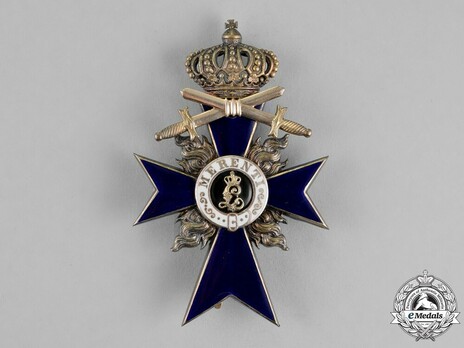
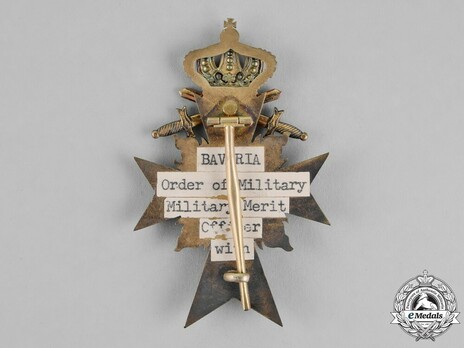
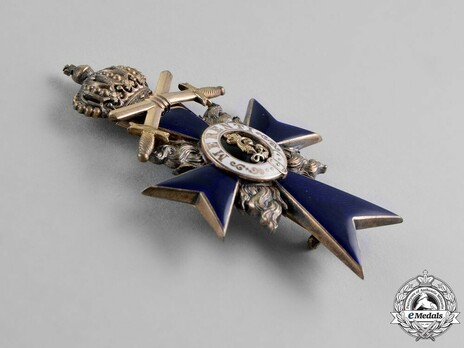
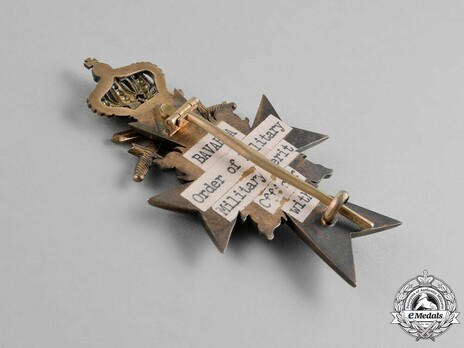
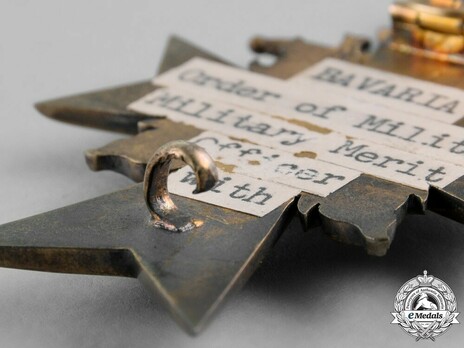
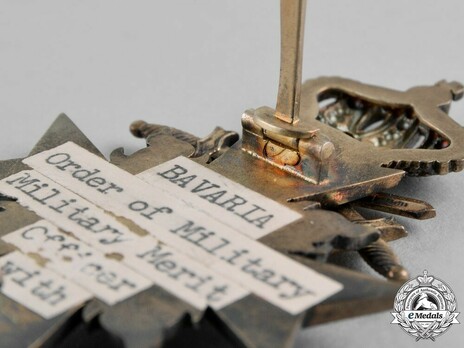
Estimated market value:
Attributes
Physical Description
A gold Maltese cross with four arms in blue enamels. The 6 o'clock arm is larger and more elongated than the other arms, and there are flames in the quadrants between the arms. The obverse bears a central black enamelled medallion with the gold crowned cipher of King Ludwig III within a white enamelled border in the form of a buckled belt, with gold letters reading “MERENTI” (Merit); with a crown and two crossed swords soldered atop the upper arm of the cross. The reverse bears a vertical pinback.
There are examples of the Officer Cross with or without flames.
History
The Order of Military Merit was established on July 19, 1866 by King Ludwig II of Bavaria. It was Bavaria’s main decoration for acts of bravery and military merit; however, it was ranked below the Military Order of Max Joseph. Military personnel, civilians acting in support of the military, and members of foreign armies were eligible for the Order of Military Merit. If an individual’s act of bravery or merit was exceptional, they qualified for the Military Order of Max Joseph.
The award was initially awarded in five classes: Grand Cross, Grand Commander, Commander, I Class Knight and II Class Knight, and an affiliated Merit Cross. Award ribbons varied based on division and class.
In 1891, swords were donated to all classes for acts of bravery or merit in war. The order could be conferred with or without swords; awards with swords were generally issued during periods of war or combat.
In 1900, the Officer’s class was added to the order. In 1905, the classes were renamed Grand Cross (and Grand Cross Breast Star), I Class Cross (and I Class Breast Star), II Class Cross (and II Class Breast Star), Officer Cross, III Class Cross, IV Class Cross, I Class Knight’s Cross, II Class Knight’s Cross, I Class Military Merit Cross, II Class Military Merit Cross, and III Class Military Merit Cross.
The Grand Cross and I Class Cross were awarded with a Breast Star; the II Class Cross could be awarded with or without a Breast Star. The III Class Cross and IV Class Cross could be awarded with or without a crown. This distinction was generally based on rank.
There was also a Military Merit Cross, which was awarded to Non-Commissioned Officers and Enlisted Men.
Makers of the order include: Eduard Quellhorst, Munich; Hausinger, Munich; Hemmerle, Munich; Jacob Reader, Straubing; Deschler & Sohn, Munich; L. Christian Lauer, Nuremberg; Weiss & Cie, Munich.
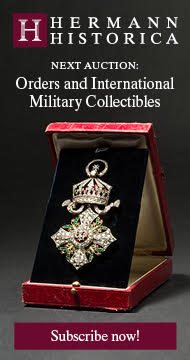
Versions
$3,500 USD
Silver gilt/Enamelled
Obv: MERENTI
49x77mm
This version is in silver gilt.
$7,900 USD
Gold/Enamelled
Obv: MERENTI
50.5x77.8mm
Jacob Leser, Straubing
This version is in gold.
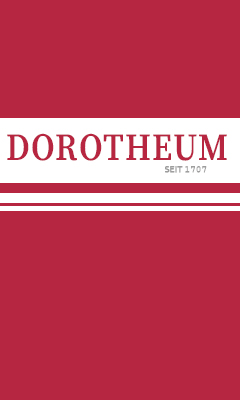

Miniatures
$450 USD
15.5x26.5mm
Gold/Enamelled
Comments
Sign in to comment and reply.

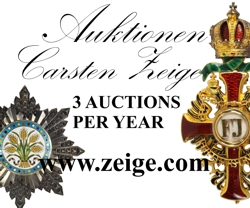
Scroll Top